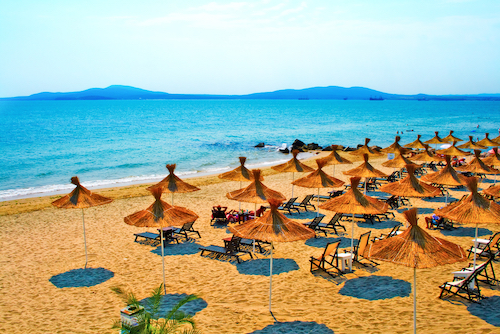It is critical for expats in Bulgaria to register with the state healthcare system, as medical costs here can be very high. In order for you to be eligible for public state health insurance, either your home country will need to have a reciprocal arrangement with Bulgaria or you will need to make national insurance contributions into the state system.You may also want to consider taking out private health insurance, whether for speed of diagnosis, to avoid any lengthy waiting times for treatment, or to cover any cost gaps which might occur between the fees charged for your healthcare and the amount that is subsidized by the national system.
Registering With The Public Health System In Bulgaria
Bulgaria now has a two-tier system of both national and private insurance. The Bulgarian National Health Insurance Fund (NHIF), based in Sofia, is the only organization which deals with public healthcare insurance. It has its origins as far back as 1878 but a different healthcare system was introduced in the 1950s, following a Soviet model. It was once again overhauled in the 1990s and it remains a socially organised system.
If you are an expat, you have to sign up with the national healthcare system: it’s compulsory. You and your employer will need to pay contributions into the national scheme (NOI). You will need a residence permit, but provided that you are making contributions, you and your dependents will be able to access GP visits, referrals to a specialist, and reductions for your prescriptions.
You will first need to register with the local National Revenue Agency office. Your employer may assist you with this, but check to make sure that you have in fact been signed up. Once this is done, you will be issued with a Bulgarian National Health Insurance Card, which doubles up as an ID card with a Personal Number for Foreigners (ЛНЧ). You must take this with you to any medical appointments to prove your eligibility. Check with the NHIF whether there is a minimum number of contributions that you need to make before you are able to access the system.

The amount of your contribution into the system will depend on your salary, but there is a minimal base rate cost of around BGN 15 a month, the equivalent of about £7. Your healthcare contributions will be around 8% of your salary: 4.8% payable by your employer and 3.2% payable by you.
If you are from an EU nation, then you will be able to use your EHIC card. The EHIC is intended only for people staying less than 90 days in the country and should not be used as a substitute for comprehensive health insurance.
Registering With A Doctor In Bulgaria
Once you have registered with the system, you will need to register with your local GP: you have free choice of practice and you can sign up at any time (if you want to change your doctor, however, you can only do so in June or December).
You will need to fill out a Permanent General Practitioner Selection Form (Регистрационни форми за избор на общопрактикуващ лекар) which can be downloaded from the NHIF website or collected from your local stationers. Fill this out in triplicate and you are now ready to sign up with your GP. You will need:
• your foreigner ID card
• the third copy of your Permanent GP Selection Form
• evidence of your contributions into Bulgarian state medical insurance
If you are an expat with children, you will need to register them with the GP as well (note that Bulgaria has a strict calendar of immunizations for children).
If you require hospital treatment and the hospital in question is part of the NHIF, your treatment will be free at the point of delivery. After being discharged from any treatment, you will be entitled to a maximum of two examinations as part of your care. Check before you receive treatment that your provider is contracted to the NHIF: if you are asked to pay costs upfront, you may be in the private rather than the public sector and any costs will be non-refundable.
The national health insurance system will cover you for:
• primary outpatient care
• specialised outpatient care
• hospital treatment
• basic dental care
• diagnostic tests
• some medication
• gynaecological care
• vaccinations
• emergency care
• ambulance transport
Even if you do not have cover, you will also be entitled to:
• emergency care
• obstetric and gynaecological examinations and medical care for childbirth for uninsured women
• in-patient psychological care
• transplantation of organs, tissues and cells
• mandatory treatment and/or mandatory isolation
• expert assessments of the type and degree of long-term incapacity to work
• medical transport
• assisted reproduction
Check that your medication is legal in Bulgaria: there have been some issues with prescriptions. What is permitted in one country may not be permitted in another. If you have to take a prescription to a pharmacist, make sure they’re contracted to the NHIF. If they are, then your medication will be free, but if not, you will have to pay for it and that cost will be non-refundable.
Signing Up For Private Health Insurance In Bulgaria
The usual range of medical and hospital treatment will be covered by private insurance, but many expats take out cover to avoid any difficulties with the public system, which is not highly ranked among world healthcare providers, although it is comparatively cheap.
Bulgaria has become a medical tourism destination for dental and cosmetic treatment over the last decade or so. Visits to private clinics cost the equivalent of €20 – 30, which is not exorbitant, but specialist and hospital fees can be quite high, so for peace of mind as well as speed of access, private cover may be the answer.
Would you like to share your experience of life abroad with other readers? Answer the questions here to be featured in an interview!

